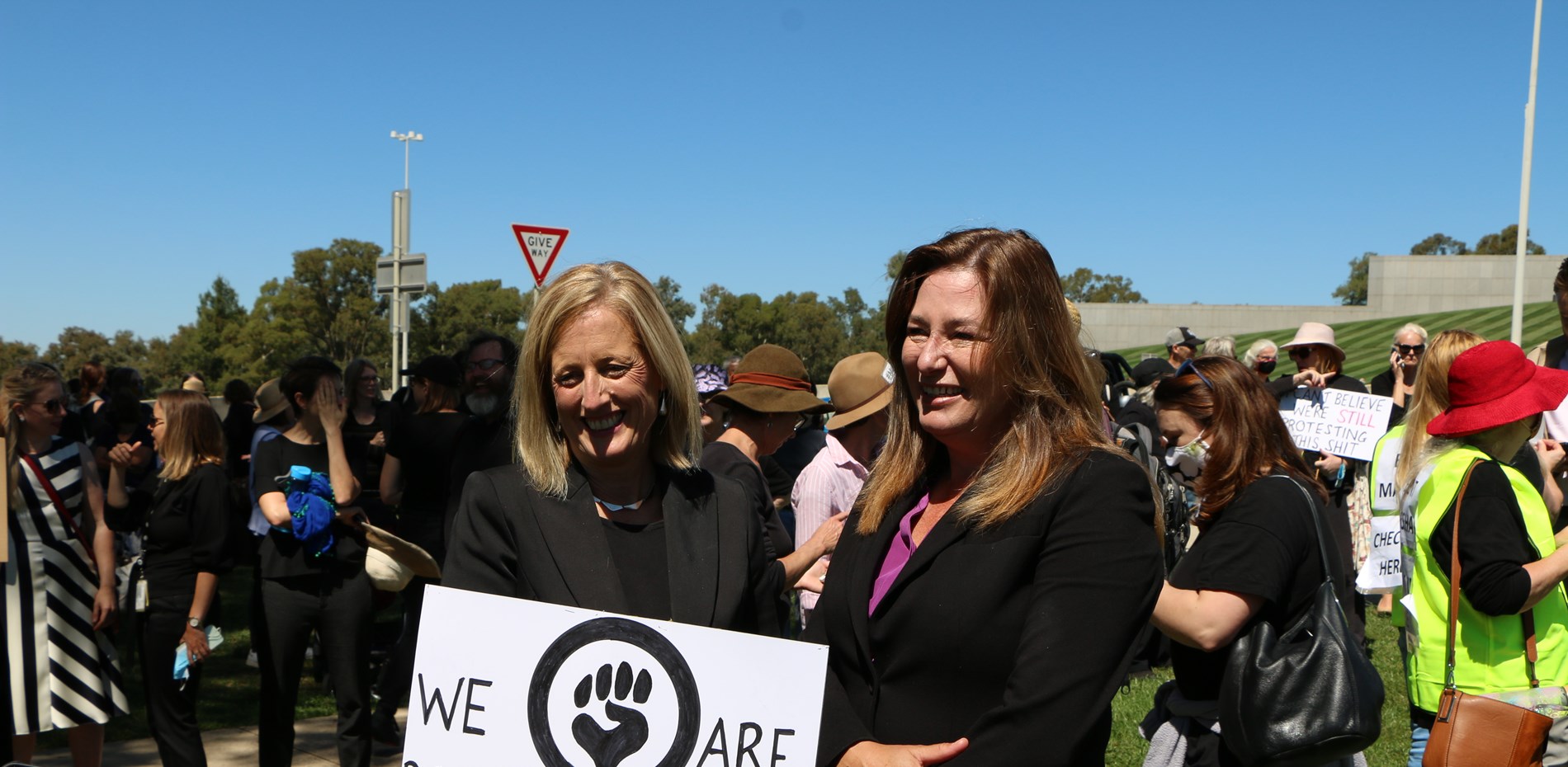Australian women have raised their voices.
They did so loudly at marches across the nation in recent years.
They did so in the pandemic which exposed the double-load that so many women face.
They did so at the election and they demanded to be heard and they demand better from their government regardless of which political party their prime minister comes from.
Today on International Women’s Day, it will be large groups of women coming together to acknowledge achievements and to rally together on the continued fight for equality. But it shouldn’t be left to women to fight this fight. It is a quest that we must all take up.
Every Women’s Day gathering is an act of solidarity, and strengthens our connection with one other.
But away from the gatherings, the lunches, breakfasts and fundraisers – there are some realities that aren’t so heartening.
It’s not acceptable that Australia has been falling behind on some really important measures of gender equality.
The starkest example of this is that we are not making progress quickly enough on eradicating violence against women and children.
Gender inequality and violence are inextricably linked. We cannot even hope for gender equality if women and children are being harmed at the levels they are. And gender inequality is a significant driver of violence against women and girls.
After all – how can you kick goals at work if you are being sexually harassed or feel unsafe in the workplace?
How can you plan your future – including further study or a more demanding job - if you have a partner that controls you, makes all the decisions for you?
Forget Australia being the land of a fair go; gender-based violence results in a less equal society.
How less equal? A lot. One in three Australian women over the age of 15 have experienced violence.
One in two women have experienced sexual harassment in their lifetime.
And we have all heard the most shocking statistic, that one woman dies every 10 days in Australia at the hands of her former or current partner.
Every two minutes, police around the nation deal with a domestic and family violence matter.
On average, that’s about 5000 calls each and every week.
For Aboriginal and Torres Strait Islander women, the statistics for violence are even starker.
First Nations women are 11-times more likely to be killed due to family violence than non-Indigenous women.
They are also 34-times more likely to be hospitalised as a result of violence.
And then there’s the violence against women that doesn’t leave a physical mark. It’s the partner always checking her phone, it’s the husband that controls the money, or the heating, cooling or alarm and camera systems or doesn’t let her see her friends or family.
The cost of sexual violence for survivors is horrendously high.
Higher health costs, higher levels of financial stress, disrupted education and careers to name a few. We know all of this. They are grim statistics but well understood.
So how do we turn these numbers around?
This is a challenge the Albanese Labor government took up when we won the election in May 2022.
As both Finance Minister and Minister for Women, I’m proud to be a member of the first federal government that has a majority of women members in our caucus but whose entire caucus is absolutely committed to driving progress towards gender equality in this country.
Whether it be passing legislation that helps close the gender pay gap or providing housing for women fleeing domestic violence, gender equality is an outcome that is baked into economic and social policy across the whole of government.
In just the first 9 months we reached agreement with states and territories on the National Plan to End Violence Against Women and Children, and backed it up with record funding in the October Budget - a huge credit to my ministerial colleague, the Minister for Social Services, Amanda Rishworth for steering that significant piece of work.
We have passed legislation to provide paid family and domestic violence leave which came into effect last month.
We are implementing all 55 recommendations from the Respect@Work report.
We are investing in consent and respectful relationships education in schools to stop violence before it starts.
The Albanese Labor government wants to make International Women’s Day about more than just celebrating women’s successes and instead see the Commonwealth Government annually report on the challenges that continue to hold women and our country back, and use this to reflect on progress.
It’s a conversation I’d like to see all Australians take part in and I’d encourage everyone to share their experiences through the survey launched today, as part of the next phase of consultation for the National Strategy to Achieve Gender Equality.
The National Strategy will guide whole of community action toward making Australia one of the best countries in the world for equality.
The Albanese Labor Government is ready to listen to all Australians who can add their voice to the conversation through the survey on the Office for Women’s website.
Senator Katy Gallagher
Minister for Finance
Minister for Women
Minister for the Public Service
This article first appeared in The Canberra Times.



